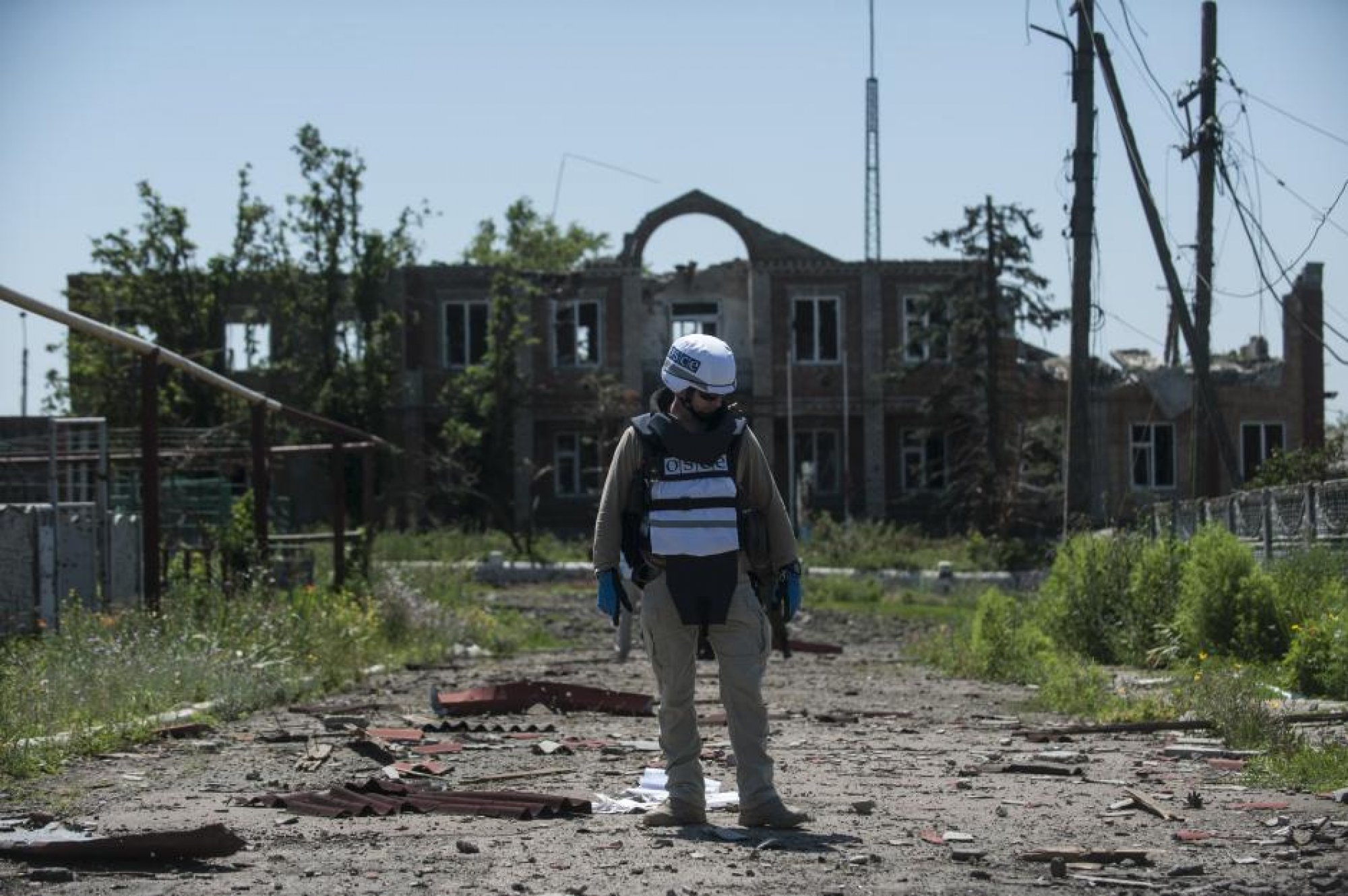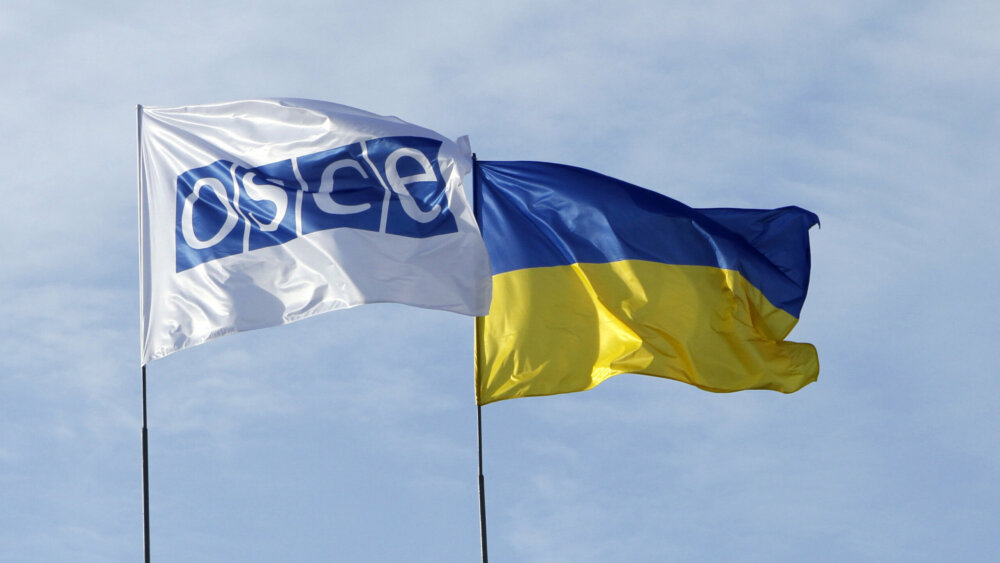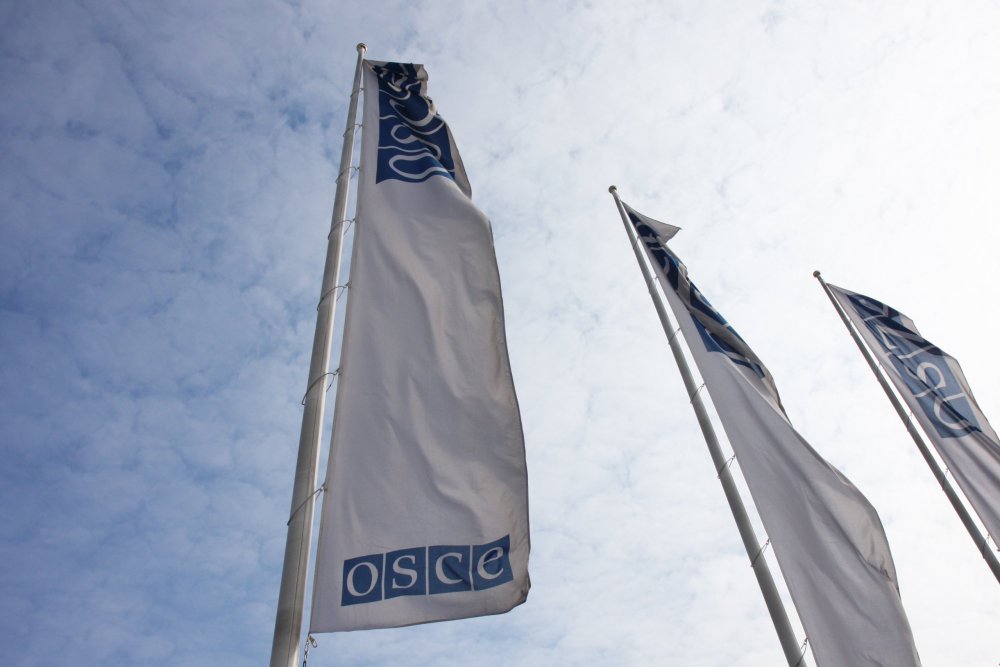OSCE/Evgeniy Maloletka

The OSCE Special Monitoring Mission: Budgeting Around Potential Impasse
The current budget of the OSCE Special Monitoring Mission (SMM) to Ukraine amounts to about 100 million euros — close to the OSCE’s Unified Budget (UB) of around 138 million euros.
Yet the SMM funding process is much less contentious; budget presentations, negotiations, and approval can all occur within the span of a few weeks. UB negotiations, meanwhile, are often drawn out due to political issues, such as reforming Scales of Contributions, or individual interests by OSCE states.
Still, the SMM budget process is complicated by a peculiar distribution: as of 2017, 80 percent of funding comes at the beginning of each yearlong mandate period from assessed contributions, which are percentage contributions from all participating States defined in a similar manner to their UB Scales of Contributions. The other 20 percent, which does not stipulate who must contribute, comes from voluntary contributions and is usually collected during the final months of the mandate.
Current hurdles
This division signifies a compromise allowing the SMM to continually operate with participating States agreement year after year. But not all parties are on board: Norway, the EU, the UK and Canada do not see that scheme as beneficial for the SMM.
Currently, the division is 84 versus 16 percent. But changes in the assessed, voluntary division are not necessarily amiable to participating States such as the Russian Federation, which would like to minimize its overall financial commitment to the SMM. This effectively makes the annual collection of SMM voluntary funds a test of political will.
This is because motivating voluntary contributions requires coordination. Collecting these funds, which sometimes amounts to 16 million euros, requires either larger contributions from wealthier states or more effort on the part of interested countries in organizing contributions, so that the SMM can function throughout its mandate period.
The fact that participating States have different fiscal years further complicates the process. Since the collection of voluntary funds often occurs towards the end of an SMM mandate period (usually from January to March), various countries might not budget for a yearly SMM voluntary contribution. For states with fiscal years ending in March, this sometimes requires them to rely on whatever money is left at the end of the fiscal year, if they elect to contribute.
Additionally, political and social turmoil — such as Brexit or the coronavirus pandemic — is often a distracting force. While participating States may politically support the SMM in principle, their financial planning does not always incorporate the uncertainty of voluntary contributions.
Until now, the voluntary portion has been fulfilled each year. But that trend might not last forever, and in that case, the SMM would need to shift toward contingency planning. Savings as a form of financial prudence, as well as general efficiency and cost-saving strategies by the SMM fund manager, help prepare for this possibility.
Still, there has been mounting pressure from some participating States for the SMM to utilize more of its yearly budget in order to justify continued budget increases (the mission saw a nearly 7 percent increase in 2017, and an 8 percent increase in 2020).
The ability to knock down the percentage of voluntary contributions from 20 to 16 percent shows that the SMM remains a high political priority. However, a lack of financial planning for the unstructured nature of voluntary contributions, as well as the fact that specific participating States have an interest in maintaining the inconvenient budget structures of the SMM, remain persistent yearly challenges.
Potential solutions
Walter Kemp, the Special Adviser to the Cooperative Security Initiative, argues that OSCE peace operations such as the SMM should have mandates allowing the mission to work hand-in-hand with political peace processes in order to “translate the political into the operational”. Financial vigilance represents one step in fulfilling this standard.
Voluntary contribution planning as part of the yearly SMM budget and the mandate renewal process could help maintain, and even expand, SMM monitoring stability. More specifically, this could minimize the need for contingency planning if voluntary funding is not fully secured. Greater financial coordination would support ongoing political negotiations by reassuring both sides that new disengagement areas, as well as progress in implementing the Minsk Agreement, can be actively and impartially monitored.
A larger assessed portion of the SMM budget would lessen the need for SMM officials to lobby participating States each year for voluntary contributions. However, changing the budget to be 100 percent assessed might cause unwanted political opposition, since only 41 participating States— out of 57 — have indicated their support for such a budget.
The challenge of yearly fund collection could be mitigated if each participating State budgeted their contribution as a percentage of the overall SMM budget rather than only the assessed portion. Another option could be to organize a “group of friends” within the Advisory Council for Management and Finance to discuss an informal agreement on voluntary contribution payments. If only the participating States that have publicly called for a larger assessed portion of the budget participate, a sizable “group of friends” could be created and other participating States might be motivated to join.
Further coordination of voluntary contributions would allow the SMM to expend resources on tasks other than lobbying for money each year. In turn, this could help sidestep any political confrontation that might arise from concrete changes to the SMM budget structure — and retain a yearly consensus for the SMM mandate.
Because financial planning requires a future-oriented perspective, informal coordination on the voluntary portion of the SMM budget might also lead participating States to think about the role of the missions in a post-conflict situation after the Minsk Agreement is fully implemented.
To reinforce political will and protect the SMM against donor fatigue, it would be beneficial if there were a more structured, collective contribution strategy for the entire SMM budget.
*Bradley Reynolds is a doctoral student in political history at the University of Helsinki’s Aleksanteri Institute – Finnish Centre for Russian and Eastern European Studies, and an associated researcher with the Academy of Finland project The Baltic Sea Region and the Post-Cold War Hysteresis (BALTRAN). He researches international history and decision makers’ memories in Finland and Russia, specifically looking at European security in the 1990s and the CSCE from a transnational perspective.



Comments
* Your email address will not be published